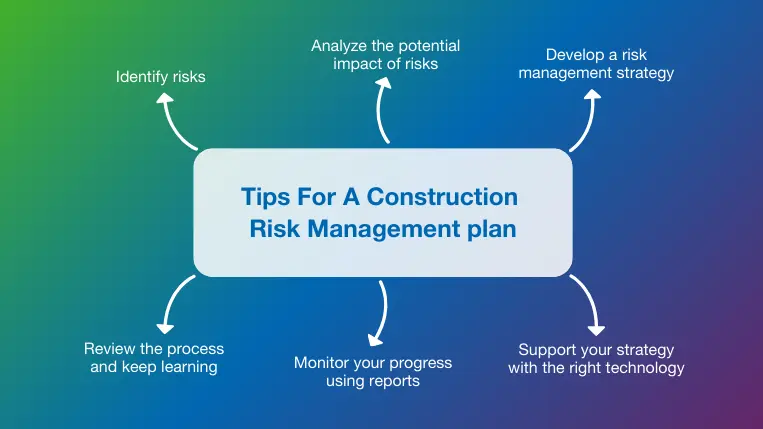Why Organizations Should Focus on the Importance of Risk Management Now More Than Ever
Why Organizations Should Focus on the Importance of Risk Management Now More Than Ever
Blog Article
Checking out the Importance of Risk Management for Effective Decision-Making Methods
In the intricate globe of organization, Risk Management emerges as an important variable in the decision-making process. The ability to determine possible hazards and opportunities, and strategize appropriately, can mean the distinction in between success and failing.
Recognizing the Concept of Risk Management
Risk Management, an essential component in decision-making, is often misunderstood or oversimplified. Generally, it refers to the identification, evaluation, and prioritization of risks to lessen, check, and control the possibility or effect of unfavorable events. It's not merely about preventing unfavorable end results, however also concerning acknowledging prospective chances. Risk Management involves disciplined and organized strategies, making use of data and informative analyses. It calls for a detailed understanding of the organization's context, objectives, and the potential threats that might thwart them. From monetary unpredictabilities, lawful obligations, calculated Management mistakes, to mishaps and all-natural disasters, it deals with numerous risks. Importantly, effective Risk Management is not stagnant; it's a constant, progressive procedure that develops with transforming scenarios.
The Role of Risk Management in Decision-Making Processes
In the world of calculated preparation and company operations, Risk Management plays an integral role in decision-making processes. Risk Management therefore ends up being a vital tool in decision-making, helping leaders to make informed selections based on a thorough understanding of the threats included. Risk Management offers as a crucial element in the decision-making procedures of any kind of company.

How Risk Management Boosts Strategic Planning
In the context of tactical preparation, Risk Management plays an essential duty. Initiating with the recognition of prospective risks, it further reaches the application of Risk mitigation procedures. The role of Risk Management is vibrant yet not fixed, as it requires constant surveillance and adjusting of methods.
Identifying Possible Dangers

Implementing Risk Reduction
Having developed the significance of determining potential dangers, the following action is to explore Risk link reduction. This procedure entails creating and implementing techniques to handle determined dangers efficiently. It is a crucial aspect of tactical planning as it enhances decision-making by decreasing potential negative outcomes. Risk reduction strategies can vary from Risk avoidance, Risk transfer, to run the risk of decrease. Each strategy should be customized to Click This Link the details Risk, considering its potential influence and the company's Risk tolerance. Furthermore, effective Risk mitigation requires a deep understanding of the Risk landscape and the prospective impact of each Risk. This understanding makes it possible for companies to prioritize dangers and assign resources efficiently, making sure that the most significant threats are attended to initially.
Tracking and Adjusting Techniques
Though Risk mitigation is an essential step in critical planning, continuous tracking and adjustment of these methods is similarly crucial. It also gives a possibility to examine the success of the Risk Management actions, enabling changes to be made where needed, more enhancing strategic planning. Tracking and readjusting Risk Management techniques is a crucial element for boosting an organization's durability and critical preparation.
Instance Studies: Effective Risk Management and Decision-Making
In the world of organization and financing, effective Risk Management and decision-making typically offer as the pillars of prosperous business. These cases highlight the worth of astute Risk Management in decision-making processes. These instances highlight the critical function of Risk Management in critical decision-making.
Tools and Strategies for Effective Risk Management
These tools, such as Risk registers and warm maps, help in determining and assessing prospective risks. Risk reaction strategies, a crucial component of Risk Management, entail accepting, preventing, moving, or mitigating dangers. With these devices and methods, decision-makers can navigate the complex landscape of Risk Management, thereby promoting notified and reliable decision-making.
Future Patterns in Risk Management and Decision-Making Techniques
As we discover the large landscape of Risk Management, it comes to be apparent that the strategies and tools made use of today will proceed to evolve. The principle of Risk society, where every participant of a company is aware and involved in Risk Management, will obtain more prestige. These trends advertise a more proactive and inclusive technique towards Risk Management and decision-making.
Verdict

Risk Management thus becomes an essential tool in decision-making, helping leaders to make educated selections based on a comprehensive understanding of the risks involved. Risk mitigation strategies more tips here can range from Risk evasion, Risk transfer, to risk reduction (importance of risk management). Effective Risk reduction requires a deep understanding of the Risk landscape and the possible influence of each Risk. Risk response techniques, a key component of Risk Management, entail approving, preventing, transferring, or mitigating dangers. The principle of Risk culture, where every participant of an organization is mindful and included in Risk Management, will get much more prominence
Report this page